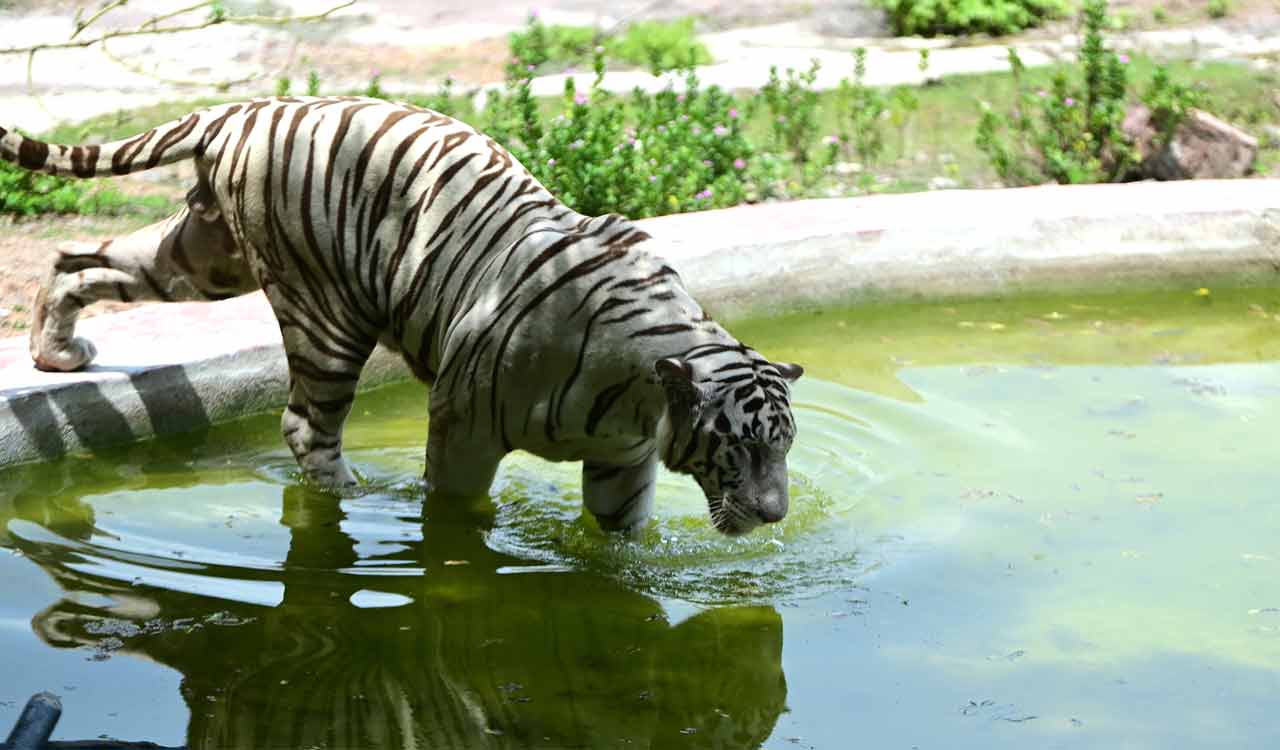Nehru Zoological Park to set up southern India’s first in-house BSL-3 lab for animal disease research
Nehru Zoological Park will soon establish a Biosafety Level-3 (BSL-3) laboratory, the first of its kind in southern India, enabling rapid diagnosis, post-mortem analysis, and research on zoonotic diseases, reducing dependence on external labs for animal health care.
Published Date - 9 August 2025, 01:07 PM
Hyderabad: Nehru Zoological Park will soon have a Biosafety Level 3 (BSL3) lab, a high-security laboratory that could change the way diseases are detected, treated and prevented within its animal collection.
The facility will also take up research on zoonotic diseases, which transmit between animals and humans, and vice versa.
The lab will be developed by upgrading the zoo’s existing mini-laboratory with state-of-art equipment and infrastructure, changing it into a sophisticated bio-safety research and diagnostic unit.
Discussions are underway with the Telangana Veterinary Biological and Research Institute, PV Narasimha Rao Telangana Veterinary University and other government research institutes for establishing the lab.
According to officials, once set up, the city zoo will be the first of its kind in southern India to have such a facility in-house. “There is a proposal to establish a state-of-art BSL3 lab at NZP for disease diagnosis and studying zoonotic diseases,” Telangana Zoo Parks Director, Dr. Sunil S Hiremath told ‘Telangana Today’ .

Once operational, the lab will enable the zoo officials to conduct in-house, real-time testing for infectious diseases, post mortem diagnosis of deceased animals besides helping the zoo prepare long-term disease prevention strategies for its animal collection. Presently, the zoo is dependent on other research laboratories for diagnosis, which takes time.
“If the zoo has its own lab, it will be easy for quick disease diagnostics. This lab will enable the zoo to carry out spot post mortem to ascertain causes of the animal death. It will also aid in preparing strategies for preventing diseases among animals,” a senior official said.
Currently, the zoo collects fecal samples area wise to ascertain parasitic load in the sample for effective deworming and health care. The samples are sent to the BRI for diagnosis and confirmation.
The zoo has a specialised animal hospital to treat sick and rescued animals. In addition, it has a quarantine facility for animals which are brought here from other zoos, to be kept and monitored before being releasing for display.